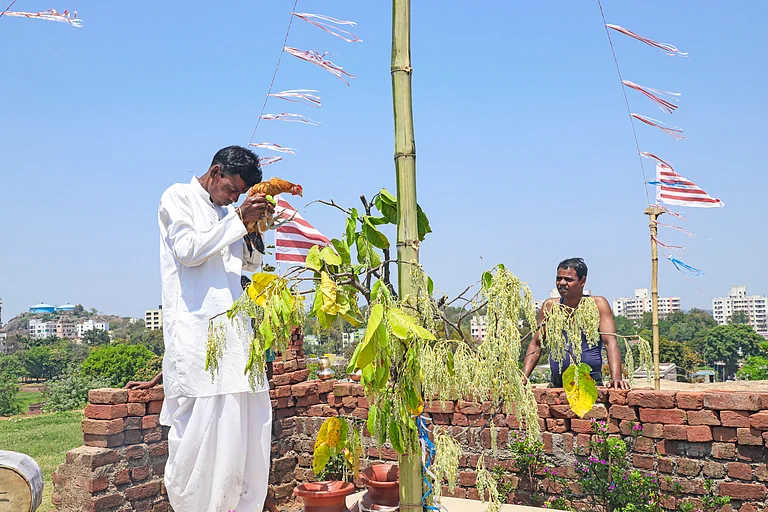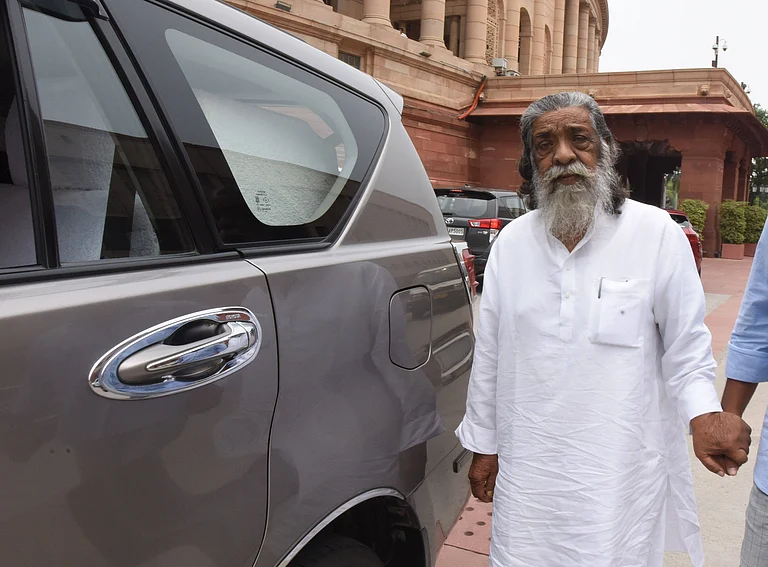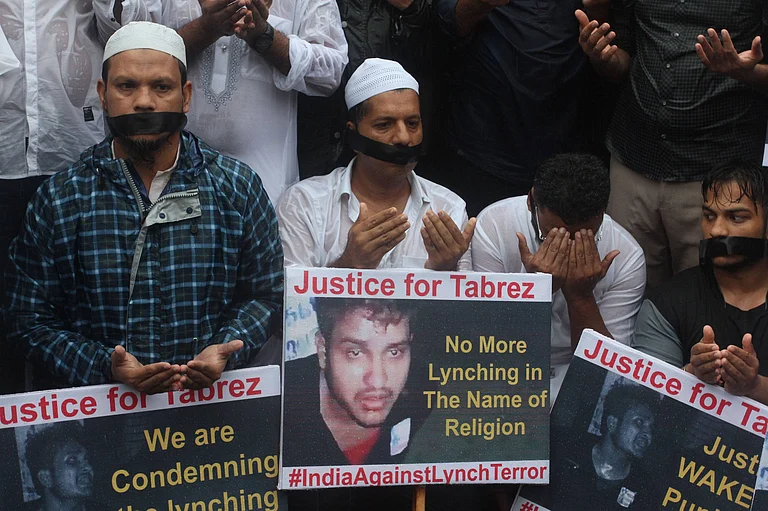The Jharkhand Mukti Morcha (JMM) is currently a regional political party in the state of Jharkhand, but it was formed in 1972 as an umbrella organisation. The party traces its roots to the Jharkhand movement of the 1950s, advocating for a separate state for the tribal regions. Over the years, JMM has played a significant role in the political landscape of Jharkhand, participating in electoral politics and contributing to the formation of the state in 2000. However, the party has faced challenges, including electoral setbacks and internal divisions.
Hemant Soren, who took on the responsibilities of Jharkhand's Chief Minister in 2019, faced a legal predicament with his arrest on 31st January 2024, by the Enforcement Directorate (ED) in connection to a Money Laundering Case. This development marked a significant chapter in Indian political history, highlighting the uncommon intensity with which the Enforcement Directorate, acting on behalf of the Central government, pressed charges against him.
JMM's Journey: Historical Background
The genesis of the Jharkhand Mukti Morcha (JMM) can be traced to the vibrant canvas of the Jharkhand movement, which dawned in the 1950s with the inception of the Jharkhand Party (JHP) that was founded by Jaipal Singh Munda, one of the members of the Constituent Assembly. Pioneering the cause for a distinct state dedicated to the tribal regions in south Bihar, the JHP initially flourished. However, encountering obstacles along the way, the movement underwent a pivotal shift, culminating in its merger with the Indian National Congress (INC) in 1963.
The ensuing period, spanning from 1970 to 1980, witnessed a metamorphosis in the movement's objectives. The focus transitioned from advocating for a separate state to championing tribal autonomy, placing significant emphasis on industrial and agrarian reforms. This shift marked a crucial juncture in the historical trajectory of the JMM, setting the stage for its formal entry into electoral politics and shaping its subsequent political endeavor.
During the 1970s, the JMM, born out of alliances between social reform organizations like Shivaji Samaj of Binod Bihari Mahato, the Marxist Co-ordination Committee (MCOR) of A.K Roy and Santhal Navyuvak Sangh of Shibu Soren, engaged in various reform movements. These included anti-liquor campaigns, literacy programs, the establishment of credit institutions, and direct-action campaigns to recover alienated land. This Alliance, sought to unite tribals against exploitation, leading to clashes and violence. Amidst all this, a student leader from Jamshedpur, Nirmal Mahato also joined the JMM.
The Jharkhand movement faced challenges during the Emergency from 1975 to 1977, and its militant methods led to a decline. Yet, amidst the nuanced choreography of political dynamics, the JMM deftly navigated the expanding crevices with its leftist allies. It gracefully opted for an electoral collaboration with the Indian National Congress (Indira) during the mid-term polls of 1980. This tactical alliance not only aligned seamlessly with the JMM's regional footprint but also added a subtle brushstroke to the INC's canvas, portraying it as a party attuned to tribal concerns. After the Emergency, attempts were made to revive political activity, focusing on mass mobilization for a separate state. In the aftermath, Shibu Soren assumed the role of general secretary, appointing Nirmal Mahato as the president of Jharkhand Mukti Morcha. Recognizing the need for a more robust movement to champion the cause of Jharkhand, Mahato proposed the establishment of a student union affiliated with Jharkhand Mukti Morcha.
Demand for a Separate State
In response to the evolving political landscape, Shibu Soren relaunched the JMM as a political party in 1984, emphasizing a separate identity for the tribal regions. The party's constitution envisioned a fight against "Dikus" (exploiters or outsiders) and sought to redefine the relationship between tribals and non-tribals to participate in electoral politics.
Nirmal Mahato’s vision materialized on June 22, 1986, giving rise to the All-Jharkhand Students Union, modelled after the All-Assam Students Union. Prabhakar Tirkey took on the role of president, with Surya Singh Besra serving as the general secretary. Mahato strategically envisioned providing training in guerrilla warfare, akin to the revolutionary movements in Assam, Bodoland, and Gorkhaland, for all leaders and members of AJSU. Initially, AJSU was working as a student organization of the JMM but shortly after Nirmal Mahato was assassinated on the 8th of August 1987, AJSU as an organization went into abeyance for the next few years.
The 1987 formation of the Jharkhand Coordination Committee (JCC) brought various political parties, including JMM factions, together to agitate for a separate state. The JMM's alliance with Congress and its eventual support for the Rashtriya Janata Dal (RJD) contributed to the creation of Jharkhand in November 2000.
Participation in Formal Politics
Shibu Soren initiated his legislative career as a Lok Sabha member in 1980. When he assumed the role of Chief Minister for the second time in 2008, he was in his sixth term as a Lok Sabha MP and was not a member of the Jharkhand legislative assembly. To extend his tenure as Chief Minister beyond six months, Soren needed to secure a seat in the state legislature. However, he faced a setback when he lost a by-election in January 2009. Consequently, Soren had to tender his resignation from the CM's position, and the ensuing political uncertainty led to the imposition of the president's rule in the state.
While the creation of Jharkhand in 2000 brought new hopes, the JMM's electoral performance faced challenges. In the 2005 assembly elections, the JMM contested in alliance with Congress but performed poorly, winning only 17 out of 81 assembly seats. The JMM's inability to secure a majority led to a coalition government and revealed challenges in electoral participation and fragmentation of votes.
The party's performance in Lok Sabha elections saw fluctuations, with significant success in 2004 when it, along with allies, won 13 out of 14 seats. However, the 2009 Lok Sabha elections marked a decline, with the JMM winning only two seats and losing around 5% of its vote share.
In 2019, The coalition of Jharkhand Mukti Morcha, Congress, and RJD achieved success in the Jharkhand Assembly elections, securing 47 seats out of 81. Despite securing the highest vote share among parties, the BJP managed to secure 25 seats. Notably, the JMM emerged as the single largest party, capturing 30 seats in the electoral landscape.
Support Base and Challenges
The party has substantial support among adivasis, constituting 26% of the population, but it faces competition from other parties like BJP. The lack of broader support among upper castes, OBCs, and urban voters poses challenges for the JMM to assert itself as the leading political force in Jharkhand.
Jharkhand has witnessed a volatile political landscape characterized by coalition politics and frequent changes in alliances. While coalition politics became prominent in the 1990s, JMM's shifting alliances and collaboration with different parties have sometimes led to strategic miscalculations. The party's decision to ally with the Congress in the 2005 assembly elections, followed by subsequent shifts, showcased a lack of a consistent and well-defined political strategy.
The party's failure to project itself as the primary driver behind the creation of Jharkhand and the inability to garner overwhelming tribal support contribute to its struggles in state politics. Internal factionalism, negative perceptions due to in-fighting, and alliance challenges further impacted the JMM's electoral fortunes.
While JMM emerged from the tribal movement and initially focused on issues of tribal autonomy and regional development, its ideological positioning has been unclear and subject to shifts. The party's alliances with different political formations, including both the Congress and the BJP at various points, have muddled its ideological identity. This lack of a clear ideological stance may have contributed to voter confusion and dissatisfaction.
Despite being perceived as a party representing tribal interests, JMM has struggled to consolidate broad-based support among the tribal population. The party's support is often fragmented along regional and tribal lines, with competition from other political parties like the BJP and Congress, further dividing the tribal vote bank. The inability to unite various tribal groups under a single banner has hampered JMM's electoral success.
The Jharkhand Mukti Morcha, born out of the Jharkhand movement, has played a significant role in the state's political history. However, challenges such as internal divisions, shifting alliances, and the failure to broaden its support base have hindered the party's ability to occupy the centre stage in Jharkhand politics. As JMM navigates the dynamic political landscape, its ability to address internal issues, forge strategic alliances, and connect with a broader voter base will determine its future trajectory in Jharkhand's political arena.



























